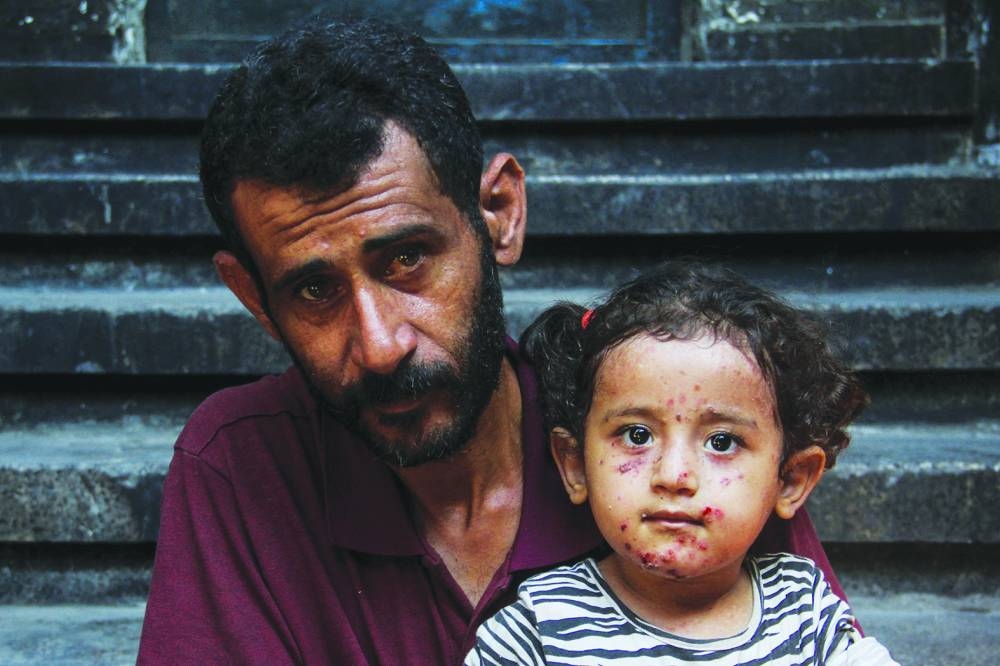Like thousands of Gaza children, Yasmine al-Shanbari, 3, is not only suffering from the upheaval of war all around them. She is ravaged by skin disease and no relief is in sight, with medicine scarce and few hospitals functioning in the Israeli-besieged enclave.
The 10-month-old war between Israel and Palestinian group Hamas has left the Gaza Strip with no clean running water, a shortage of aid and medicine and raw sewage everywhere, giving rise to skin diseases and other afflictions. Red scratchy patches have spread all over Yasmine’s face and her father feels helpless as she sits in his lap in a burnt-out, crowded school where they have taken shelter in the Jabalia urban refugee camp in north Gaza.
Tiny little insects were visibly flitting around her face, while piles of garbage rotted in the high summer heat outside.
“The disease she has on her face has been there for almost 10 days now and hasn’t gone away,” said her father, Ahmed al-Shanbari. “We did not leave out any medicine to give to her, hoping it will clear up from her face.” The death toll continues to climb in Gaza, with almost 40,000 Palestinians killed, according to Gaza authorities. Skin diseases are not the only illnesses that are creeping into one of the most densely populated places on earth.
“Yesterday, we were talking about hepatitis, and today we are talking about contagious skin diseases. Every day there are new diseases spreading among children,” said Dr Wissam al-Sakani, spokesman for Kamal Adwan Hospital.
The World Health Organisation (WHO) has sounded the alarm that Hepatitis A and polio are also spreading among children. “UN agencies warned of the high risk of the further spread of infectious diseases in Gaza, amid chronic water scarcity and no way to adequately manage waste and sewage,” it said in a report earlier this month.
“The waste management system in Gaza has collapsed. Piles of trash are accumulating in the scorching summer heat. Sewage discharges on the streets while people queue for hours just to go to the toilets.”
Israel denies responsibility for delays in getting urgent humanitarian aid into Gaza, says the UN and others are responsible for its distribution once inside the enclave.
Ammar al-Mashharawi, a 2-year-old toddler, also has a fiery red rash all over his face and body in Kamal Adwan Hospital, which was struck by Israeli missiles in May.
“Look at the child, his whole body is like this. We have been to more than one hospital to find medicine for him,” said Ammar’s father Ahmed as he held his wailing son while medical staff checked him. “We adults manage somehow, but the children, God help them, have no food or medicine. The situation is indescribable,” Ahmed added.

Yasmine al-Shanbari, a Palestinian girl with a skin infection, looks on as she is held by her father, amid Israel-Hamas conflict, in Jabalia in the northern Gaza Strip.
